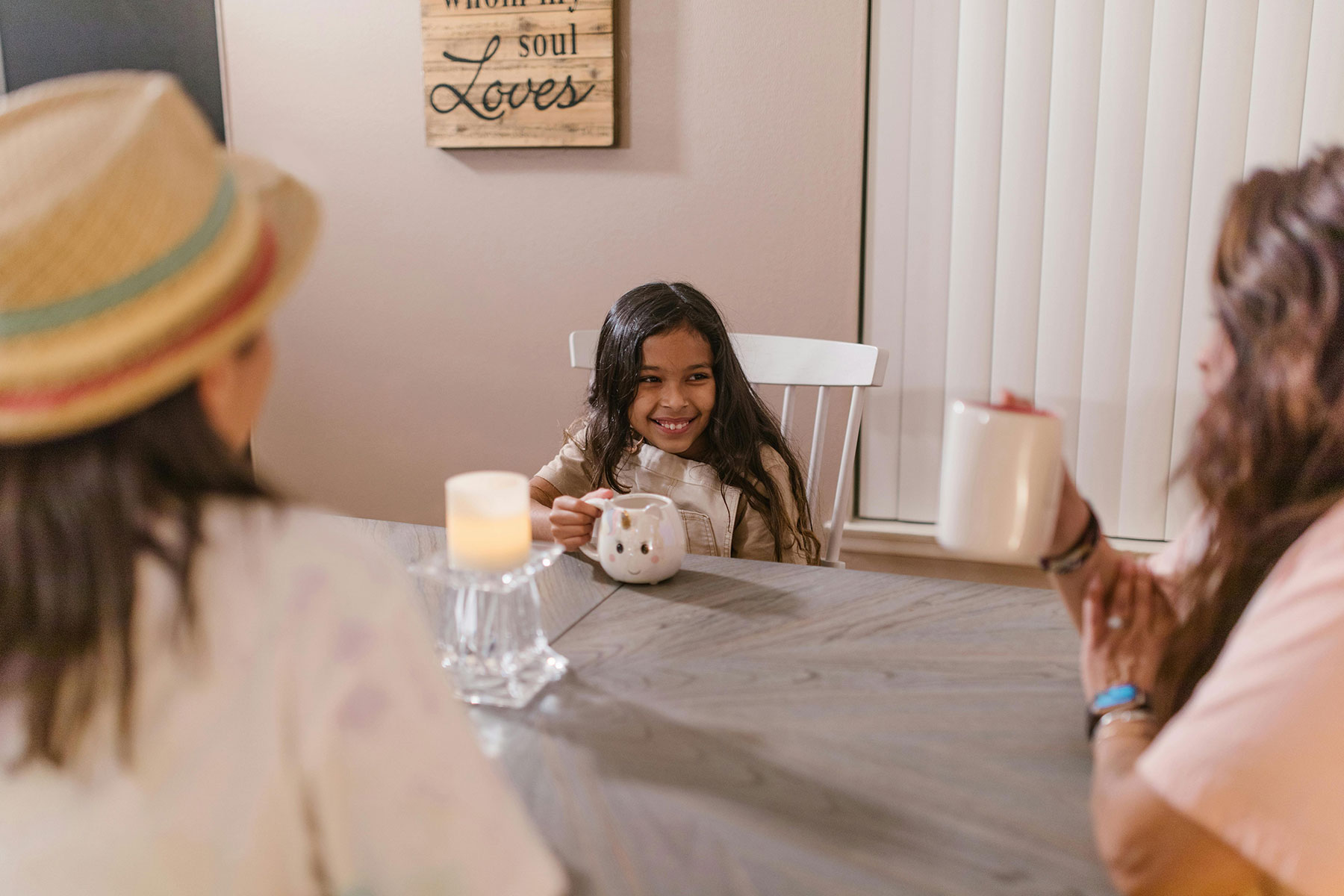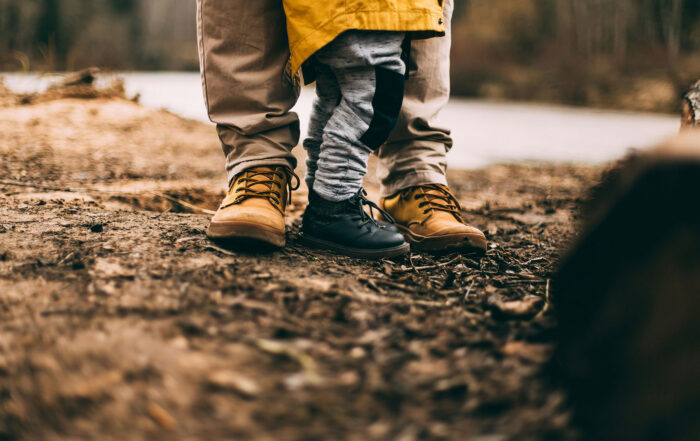
By Chester Street Foundation
Coronavirus is giving rise to another tragic issue. Child abuse. Hospitals in Texas have reported seeing an increase in child abuse cases, which they believe is driven by the increase in psychological stress at home and children out of school during the day. Furthermore, the group who most often report child abuse cases, our teachers, no longer have their children in class to monitor them. Last year, nearly 60,000 children in Texas were victims of child abuse. That number is unacceptable as is – and we are disheartened to hear that this number may be increasing as a result of the coronavirus crisis.
April is Child Abuse Prevention Awareness Month, a month dedicated to shining a spotlight on the incidence of child abuse in our community and how we all play a role in helping children.
Do you know the signs of child abuse and how to make a report if you suspect a child is a victim?
The Department of Family and Protective Services separates child abuse into four categories: Physical abuse, neglect, sexual abuse, and emotional abuse. Some of the signs are:
• Frequent injuries such as bruises, cuts, black eyes, or burns without adequate explanations
• Passive, withdrawn, and emotionless behavior
• Lack of personal cleanliness
• Knowledge of sexual relations beyond what is expected for a child’s age
• Low self-esteem
• Caregiver who belittles the child, withholds love, and seems unconcerned about the child’s problems
Resources for signs of child abuse:
http://www.dfps.state.tx.us/Child_Protection/
https://www.dfps.state.tx.us/Training/
https://www.nctsn.org/resources/child-physical-abuse-fact-sheet
https://www.nctsn.org/what-is-child-trauma/trauma-types/early-childhood-trauma/effects
https://www.nctsn.org/what-is-child-trauma/trauma-types/sexual-abuse/effects
Reporting child abuse:
Every adult in the state of Texas is a mandated reporter, not just mental health professionals and school personnel. That means that if you have a reasonable suspicion that a child has been abused or neglected, you are required by law to inform the Texas Department of Family and Protective Services of those concerns. You can make a report anonymously if you are not a Professional Reporter (someone licensed or certified by the state or works for an agency or facility licensed or certified by the state and has contact with children as a result of their normal duties). Professional reporters are required to make a report within 48 hours of learning information that leads to suspicion of abuse or neglect.
You can make a report by calling 1.800.252.5400 or using the online system: https://www.txabusehotline.org/Login/Default.aspx. Both systems are available 24 hours a day, 7 days a week.
Here’s how you can help: Please share this post! We want to reach more than 60,000 individuals in our community. During this critical time, we all need to know the signs of child abuse and how to report an incident if we suspect a child is a victim.
Chester Street Foundation was established in 2017 to shine a light on the invisible wounds of childhood trauma so that children receive the treatment they deserve. Our strategy to fulfill our mission is to educate our community on the science behind the emotional reactions to trauma – and in this current environment, we are seeking to raise a total of $3500 to produce a video to educate about trauma and the effects of child abuse. This video could then be provided free of charge to the public including schools, faith-based communities, medical and mental health professionals, parents, etc. In this time of considerable economic and emotional stress, we appreciate any amount that you can donate to help us towards our goal of sharing information and resources that will help children.
PLEASE DONATE HERE: https://chesterstreetfoundation.org/donate-now/
Chester Street Foundation also offers additional resources for schools and organizations working with children ON ZOOM:
TraumaTALKS: Shining a light on the invisible wounds of childhood trauma (One-hour presentation)
TraumaTALKS provide an overview of childhood trauma with the latest academic knowledge against the backdrop of Chester Street Foundation’s Founder Shawn Alex Nemeth’s inspirational story. In addition to understanding the science behind the emotional reactions to trauma, audiences will also learn why it’s critical to help children heal from trauma and how they can play a role in changing a child’s life.
https://chesterstreetfoundation.org/overview/education/traumatalks/
TraumaTRAININGS: Shining a light on the invisible wounds of childhood trauma (Three-hour workshop)
This three- hour workshop, facilitated by Shawn Alex Nemeth (a trauma survivor), provides professionals with a personal and professional perspective of childhood trauma alongside the latest research and evidenced based tools to help children heal.
Continuing education credits for TraumaTRAININGS are available for licensed psychologists, social workers, and counselors. https://chesterstreetfoundation.org/overview/education/traumatrainings-2/
For more information about TraumaTALKS and TraumaTRAININGS, Contact Shawn@chesterstreetfoundation.org
Share This Post!
Ukrainian refugees in Poland get help for trauma you can’t see — mental health
By Dana Bash and Abbie Sharpe, CNN Warsaw, Poland (CNN)Eight-year-old Yana was going to gymnastics class six days a week at home near Odessa, Ukraine. Now, she can only practice by [...]
Mental health effects of Ukraine war zone on children
By Mary Kekatos As the Russian invasion of Ukraine intensifies, children are experiencing devastating consequences of being caught up in the war zone. At least seven children have been killed, according to United Nations [...]
The Chilling Effects of the Texas Anti-Trans Directive
By Mira Miller When Texas Governor Greg Abbott penned a letter directing state officials to investigate healthcare providers or parents who help transgender youth receive gender-affirming care, some believed his order would be ignored. [...]
What Is Intergenerational Trauma?
By Ivy Kwong, LMFT Humans have survived for thousands of years by evolving the ability to adapt. If you live with chronic stress or have lived through a traumatic event, certain [...]
Is It ADHD or Trauma
By Caroline Miller When kids have behavior and attention issues in school, the first explanation that comes to mind is often ADHD. But exposure to trauma can also cause symptoms that [...]
Student Trauma Is Real. But Connection Can Heal.
By Gary G. Abud, Jr. As humans, we are hard-wired for connection with each other. When we face challenging life situations, we often seek out and lean on others. Relationships are [...]







